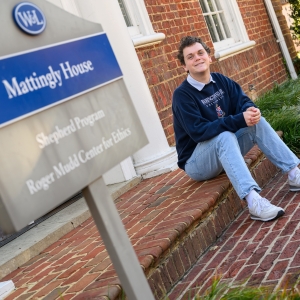Poverty and Human Capability Studies
- Department Interdisciplinary
- Academic Division The College
- Offerings Minor
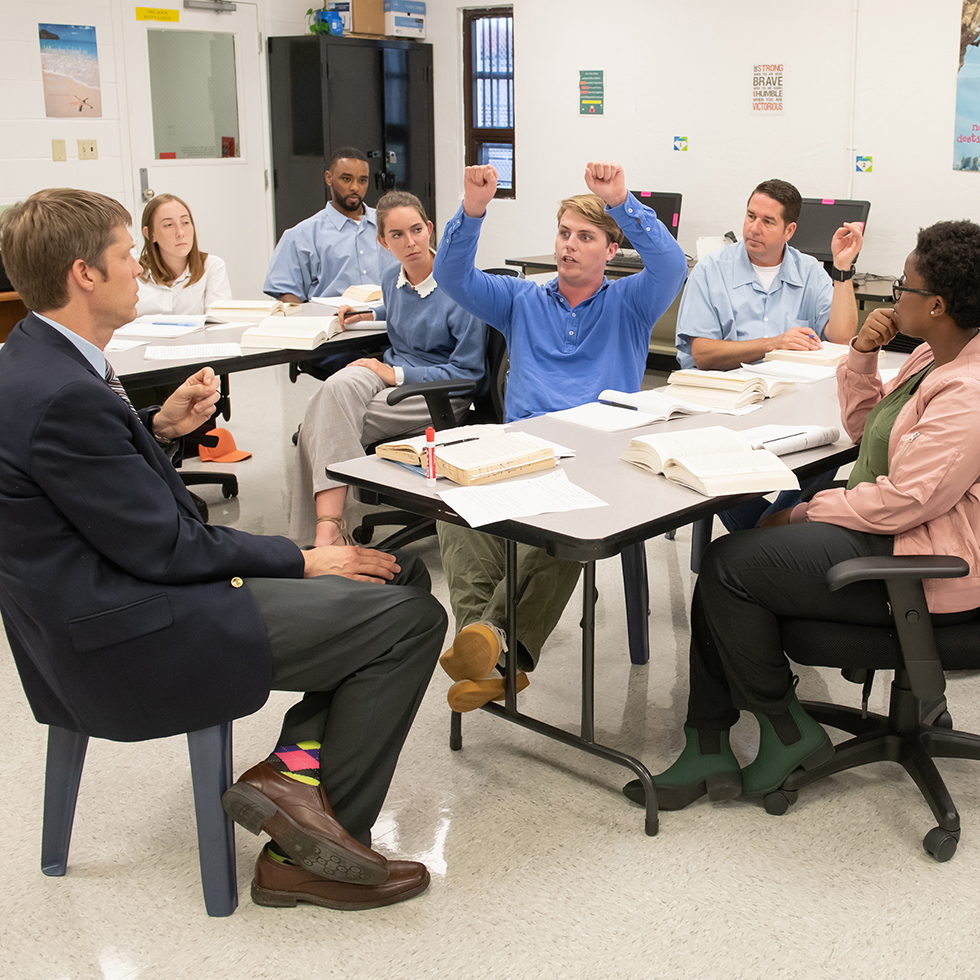

The Shepherd Program integrates thought and action to prepare students from different majors, different career paths, and different political perspectives to understand and address the causes and consequences of poverty in ways that respect the dignity of every person.
Poverty
Poverty gives rise to some of today’s most pressing moral and social problems. The Shepherd Program integrates thought and action to prepare students to understand and address the causes and consequences of poverty in ways that respect the dignity of every person.
Students weave together poverty-related courses across campus (economics, education, law, philosophy, politics, sociology, and more) and hands-on service and internship experiences around the county and the world to supplement their major areas of study. Those pursuing a minor in poverty studies also undertake capstone research projects that connect their concerns about poverty and inequality with their future civic and professional lives.
Career Paths
Although each student’s experience is unique, there are several common pathways through our program. Coordinated interdisciplinary coursework, summer internships and community-based learning prepare students for careers in economic development, education, health and medicine, law, public policy and more.
Summer Internships
Summer interns work with nonprofit, governmental and non-governmental agencies providing high-quality anti-poverty services within under-resourced communities. Students learn firsthand about poverty and community development in the U.S. or abroad by living with and working alongside professionals, community members and other college students who share their passion for reducing poverty and promoting opportunity. Internships — in economic development, education, healthcare, legal services, housing, hunger, immigration and refugee services, and more — help students to develop the insights and skills needed for civic involvement and future employment. Shepherd collaborates with over 100 organizations, including Camden Coalition of Healthcare Providers, D.C. Public Defenders, Harlem Children’s Zone, Cluj School of Public Health in Romania and Colegio de Bachilleres in Puerto Morelos, Mexico.
Research
The Shepherd Program is premised on the idea that both careful scholarship and collaborative community engagement are essential in the fight against poverty. Students have numerous opportunities to conduct high quality research into the many dimensions of poverty and inequality.
Prior to graduation, all poverty studies minors work with faculty members to complete a capstone research project or discipline-based thesis on a poverty-related issue. Projects connect coursework and/ or internship experiences with students’ academic, civic or professional interests. Some students also participate in the program for Summer Research Scholars (SRS), working alongside Shepherd affiliate faculty to examine an aspect of poverty through one or more disciplinary lenses.
Additionally, some students conduct research under the guidance of The Community-Academic Research Alliance (CARA), our community-based research (CBR) initiative. CARA pairs W&L students with faculty and community partners in the Rockbridge area and beyond to address community-identified needs or challenges. CARA provides students with rich experiential learning as researchers and consultants, strengthening professional skills, while having meaningful impact within the community.
Service & Leadership Opportunities
Shepherd students lead pre-orientation service-learning trips for incoming students. Trip themes include: housing and hunger (Washington, D.C.); education policy (Baltimore, Maryland); healthcare (Richmond, Virginia); and civil rights (Greensboro, North Carolina).
10-12 Shepherd students per class are selected to participate in a four-year structured service and leadership development program. Bonners commit to 1800 hours of training and service in an area of personal or professional interest prior to graduation.
Shepherd students lead fellow undergraduates and community volunteers in efforts to reduce food insecurity and food waste in our local community, while building positive relationships with community members. Campus Kitchen Leaders and volunteers provide over 35,000 meals per year to food insecure children and adults in the surrounding area.
Shepherd students collaborate with local community agencies to organize regular service days in the local community and also lead alternative break service-learning trips each year. Each student-led trip integrates direct service and learning about a pressing poverty-related issue. A recent trip to Atlanta partnered with Friends of Refugees.
Shepherd graduates who secure employment with social impact organizations in participating cities continue their academic, civic and professional development through mentorship and learning opportunities supported by alumni in the area.
“I had never thought about issues of poverty from an academic perspective. I knew that I had found something meaningful.”
Kara Karcher
Class of 2011
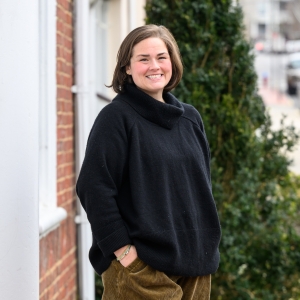
Marisa Charley Awarded the Spring 2026 Civic Engagement Mini-Grant
Charley will utilize the grant to design pedagogical approaches that strengthen students’ civic engagement and learning.
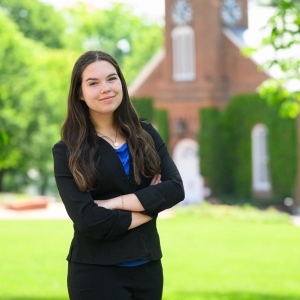
In The Lead: Linking Community and Career
From a public health Volunteer Venture trip to alumni mentorship, the W&L network opened doors and supported dreams for Liv Ullmann ’25.
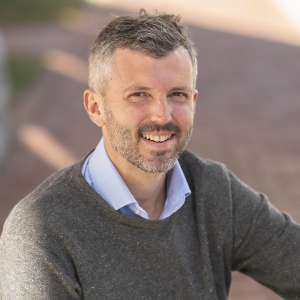
Jon Eastwood to Deliver Lecture in Honor of His Appointment to the William P. Ames Jr. Professorship in Sociology
Eastwood’s talk, titled “Reflections on the Sociology of Cynicism and Distrust,” will be held Feb. 19 in Northen Auditorium.
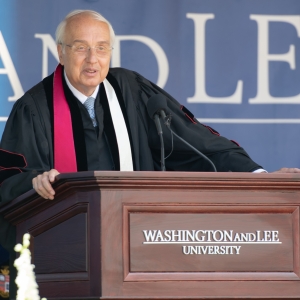
In Memoriam: Harlan Beckley, Former Acting University President and Fletcher Otey Thomas Professor of Religion Emeritus
Beckley worked at Washington and Lee University for 40 years and served as the founding director of the Shepherd Program for the Interdisciplinary Study of Poverty and Human Capability.
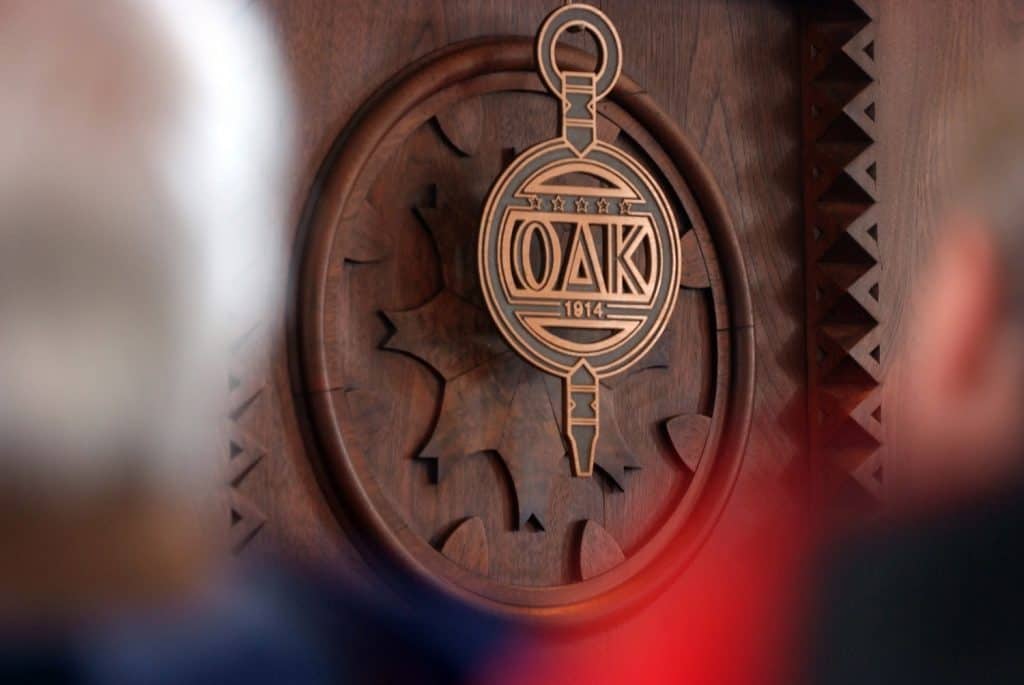
W&L Alumni Receive Omicron Delta Kappa Scholarship
Two Washington and Lee University graduates received scholarships from the National Leadership Honor Society to support graduate and professional study.
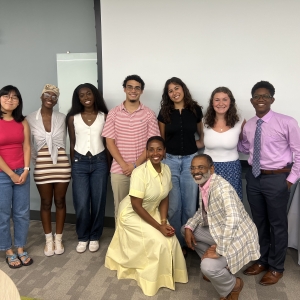
Change Agents: DeLaney Center Interns Help Drive Social Progress
Eleven W&L students participated in the first full year of programming spread across multiple states.
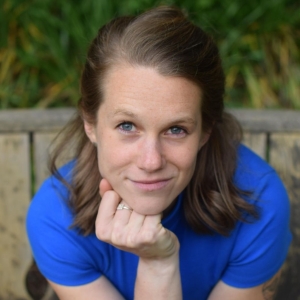
Bringing Humanity Into The Conversation
Kate LeMasters ’15 cultivated a career of addressing public health inequalities with marginalized societies.
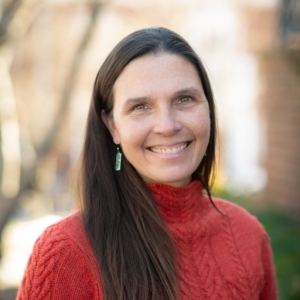
Fran Elrod Elected Future Chair of the Governing Board for the Shepherd Higher Education Consortium on Poverty
The associate director of W&L’s Shepherd Program will serve a two-year term leading the consortium’s governing board and council beginning in September 2026.
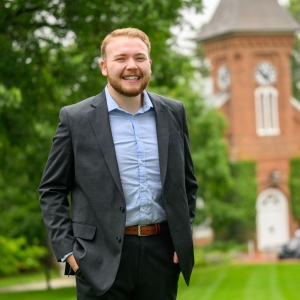
W&L Outcomes: Charlie Mlcek ’25
Mlcek is returning to Capitol Hill as an AI Policy Fellow through the Horizon Institute for Public Service.
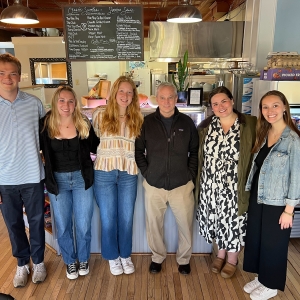
Marisa Charley and the W&L Bonner Program Featured in Article Posted on Higher Ed Jobs
The story focuses on the Bonner Program’s collaborative work with the Street Medicine Institute.

Leandro Laperne ’28 Participates in the American Enterprise Institute Summer Honors Program
The rising sophomore completed a week-long program held in Washington, D.C.
Sample Courses
At W&L, we believe education and experience go hand-in-hand. You’ll be encouraged to dive in, explore and discover connections that will broaden your perspective.
- Neighborhoods, Culture & Poverty
- Literary Approaches to Poverty
- Poverty Law
- Social Inequality & Fair Opportunity
- Race & Ethnic Relations
- Poverty, Dignity & Human Rights
SOAN 266
Neighborhoods, Culture & Poverty
This course examines social-scientific research on the determinants of poverty, crime and ill health by focusing on neighborhoods as the sites where many of the mechanisms impacting these outcomes operate. In addition to engaging with key readings and participating in seminar discussions, students conduct their own exploratory analyses of neighborhood level processes using a variety of spatial data analysis tools.
ENG 260
Literary Approaches to Poverty
In this course, we examine contemporary American literature concerned with historic poverty, and subsequent trauma, as a condition of material lack that troubles the nation’s founding commitments to individual freedom and social equality. To better understand the literary treatment of poverty, we consider this writing in relation to ongoing scholarly and political debates about the origins and remedies of economic inequality.
POV 280
Poverty Law
Historical and contemporary policy debates about poverty in the United States. Topics include the constitutional treatment of poverty, as well as the legal and policy treatment of questions of access to specific social goods, such as housing, health care, education and legal services. Coverage of those topics include a look at the federalism dimensions of the legal approach to poverty in the United States. We also examine the intersection of the criminal justice system and poverty and touch on international perspectives on poverty.
PHIL 242
Social Inequality & Fair Opportunity
An exploration of the different range of opportunities available to various social groups, including racial, ethnic and sexual minorities, women and the poor. Topics include how to define fair equality of opportunity; the social mechanisms that play a role in expanding and limiting opportunity; legal and group-initiated strategies aimed at effecting fair equality of opportunity and the theoretical foundations of these strategies; as well as an analysis of the concepts of equality, merit and citizenship, and their value to individuals and society.
SOAN 228
Race & Ethnic Relations
An examination of why and how society creates and maintains racial and ethnic boundaries in the U.S. We discuss some of the crucial questions, which include: What conditions constitute a privileged group and an oppressed group? Why and how do racial/ethnic minority groups, the poor and women experience discrimination, oppression and exclusion in social life? Is there any racial discrimination against privileged racial/ethnic groups? How can ordinary people, policymakers and social scientists contribute to improving race and ethnic relations among different social groups in the U.S.?
POV 245
Poverty, Dignity & Human Rights
Is severe poverty a human rights violation? This course examines that question and others by means of an investigation of the main philosophical and religious debates about human rights. More broadly, the course provides students with the opportunity to examine our duties (individually and collectively) to those said to suffer from any human rights abuse.
Meet the Faculty
At W&L, students enjoy small classes and close relationships with professors who educate and nurture.


Howard Pickett
Director of the Shepherd Program; Professor of Ethics and Poverty Studies; Adjunct Professor of Law
Pickett teaches poverty studies courses on dignity and human rights, oppression and privilege, human capability and Martin Luther King Jr. He researches ethics, poverty, distributive justice and modern religious thought.


Melina Bell
she/her
Law, Justice, and Society Interim Program Head and Professor of Philosophy and Law
- P: 540-458-8899
- E: bellm@wlu.edu
Bell is a part of the faculty in the Women’s, Gender, and Sexuality Studies Program, the Shepherd Program for the Interdisciplinary Study of Poverty and Human Capability, and the Law, Justice, and Society Program. She also teaches at the Law School. Professor Bell’s primary research interests are in political philosophy, philosophy of law, and feminist philosophy.


Marisa Charley
Director, Bonner Program; Instructor of Poverty Studies
- P: 540-458-8131
- E: charleym@wlu.edu
Marisa Charley oversees student activity in the Bonner program, teaches introductory poverty studies courses, and serves as the coordinator of the Community-Academic Research Alliance.


Jenny Davidson
Assistant Director of the Shepherd Program
Jenny, who graduated from W&L in 2008 with degrees in sociology and politics, and a minor in poverty and human capability studies, advises Volunteer Venture and the Nabors Service League while managing communications and events for the Shepherd Program.


Jonathan Eastwood
Department Head, Sociology and Anthropology; Professor of Sociology
Professor Eastwood is a social theorist who also has a strong interest in quantitative methods. He teaches seminars on classical and contemporary theory as well as a series of courses that train students how to use quantitative and computational tools to answer sociological questions.


Fran Elrod
Associate Director of the Shepherd Program
- P: 540-458-8230
- E: elrodf@wlu.edu
Fran Elrod helps oversee and run the Shepherd Poverty Program. Previously, she worked for the Rockbridge Area Community Services Board, and also worked extensively with youth on the Navajo reservation in Arizona and New Mexico.


Art Goldsmith
Jackson T. Stephens Professor of Economics
Goldsmith’s courses are often interdisciplinary and draw from insights in other disciplines to foster a deeper understanding of topics in economics.


John D. King
Clinical Professor of Law, Director of Experiential Education and Director, Criminal Justice Clinic
- P: 540-458-8518
- E: kingj@wlu.edu
In addition to designing and supervising the Criminal Justice Clinic, King teaches criminal procedure and evidence. His scholarship focuses on indigent criminal defense systems and the right to counsel, as well as criminal defense and prosecution ethics.


Molly Michelmore
Professor of History
Michelmore teaches courses on race, class and politics in postwar America, the age of Reagan, the 1960s, and the Cold War. She has researched fiscal policy and welfare state formation, as well as American political development.


Karla Murdock
Jo M. and James M. Ballengee Professor of Cognitive and Behavioral Science
- P: 540-458-8248
- E: murdockk@wlu.edu
Among Murdock’s courses are Introduction to Clinical Psychology and Developmental Psychopathology. Her research program examines associations between technology use and indicators of health, well-being and cognitive performance.


Marcos Perez
Assistant Professor of Sociology
- P: 540-458-8793
- E: mperez@wlu.edu
Perez teaches courses such as Revolutions and Revolutionaries and Poverty and Marginality in the Americas. His research interests include political sociology, urban studies, stratification and Latin American studies.


Katharine L. Shester
Professor of Economics
- P: 540-458-8607
- E: shesterk@wlu.edu
Shester teaches courses on urban economics, women in the economy and U.S. economic history. Her research interests include American economic history, urban and labor economics, demography and education.
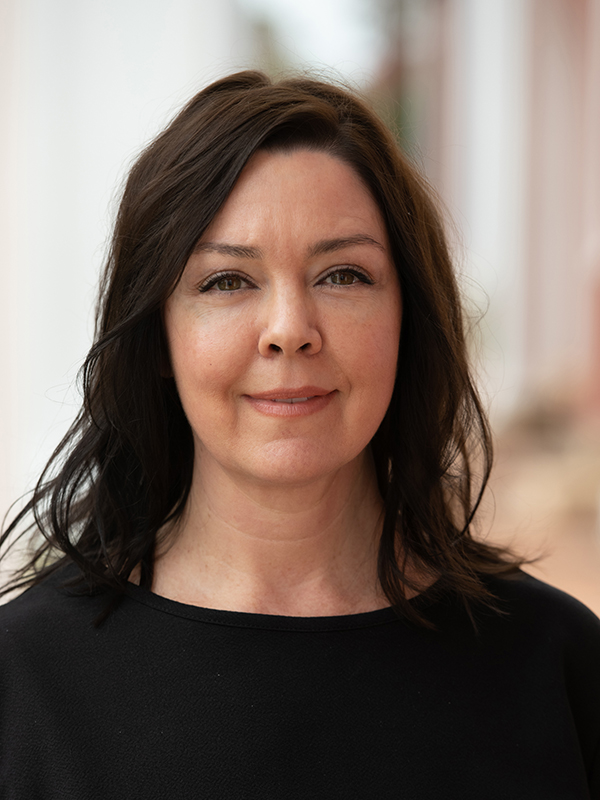

Erin Taylor
Associate Professor of Philosophy
- P: 540-458-8051
- E: taylore@wlu.edu
Taylor teaches courses on ancient Greek philosophy, medicine, research, poverty and medical ethics. She has researched normative ethics, political philosophy and bioethics.













